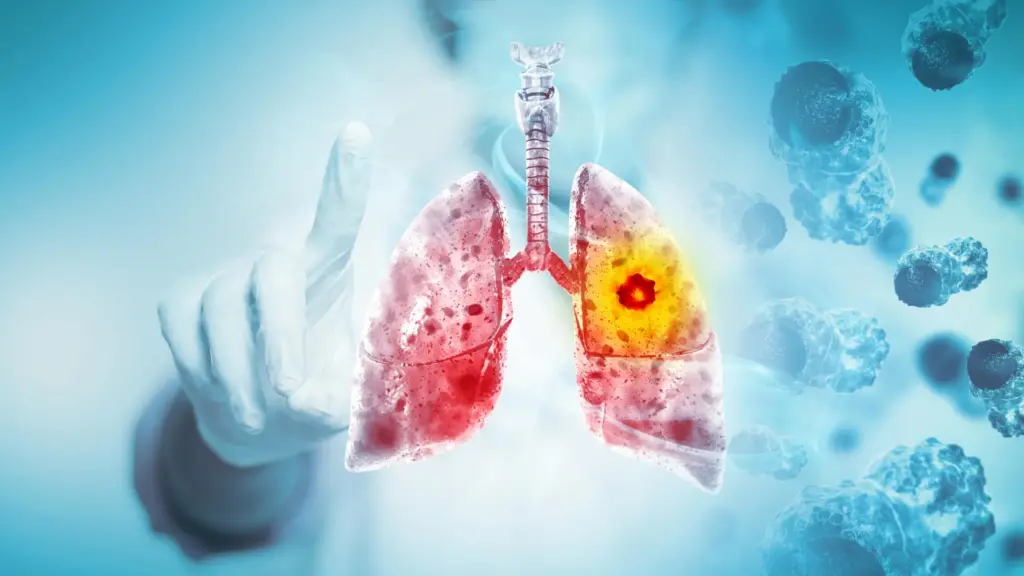Lung cancer remains a leading cause of cancer-related deaths globally, with non-small cell lung cancer (NSCLC) representing the vast majority of cases. Current treatments, primarily chemotherapy, often fall short due to drug resistance, toxic side effects, and the suppression of the body’s own immune response. However, groundbreaking research from Tongji University School of Medicine and Nantong University offers a beacon of hope, introducing a revolutionary approach that could reshape the landscape of lung cancer treatment.
This innovative therapy focuses on a cellular powerhouse: the mitochondrion. These organelles, often called the “powerhouses of the cell,” are responsible for generating energy. By targeting mitochondria, researchers aim to bolster the immune system’s ability to fight cancer and enhance the effectiveness of existing chemotherapy drugs.
The Science Behind the Breakthrough 🔬
The study explored the potential of mitochondrial transplantation – a process of introducing healthy mitochondria into cancer cells and the surrounding immune cells. Researchers used mitochondria isolated from human cardiomyocytes (heart muscle cells), known for their robust energy production. These healthy mitochondria were then introduced into NSCLC tumor models, both in laboratory settings (in vitro) and in living organisms (in vivo).
Remarkably, the researchers found that while mitochondrial transplantation alone didn’t directly harm cancer cells, its combination with the chemotherapy drug cisplatin dramatically amplified the drug’s effectiveness. This synergistic effect significantly reduced the amount of cisplatin needed to inhibit tumor growth, indicating a marked increase in the drug’s sensitivity.
How Does it Work? 🤔
The combined therapy achieved a remarkable dual effect. First, it restored the energy levels and function of immune cells, such as T cells and natural killer (NK) cells, within the tumor microenvironment. These rejuvenated immune cells became more effective at targeting and destroying cancer cells.
Second, the therapy altered the metabolic landscape of the tumor. It reversed the “Warburg effect,” a metabolic shift where cancer cells preferentially use glycolysis (sugar breakdown) for energy even in the presence of oxygen. The introduction of healthy mitochondria promoted oxidative phosphorylation (the more efficient energy production pathway), making the cancer cells more vulnerable to chemotherapy.
Promising Results in Animal Models 🐭
In mouse models, tumors treated with the combined mitochondrial transplantation and cisplatin therapy shrank significantly more than those treated with chemotherapy alone. Furthermore, the researchers observed a substantial increase in immune cell infiltration within the tumors, directly supporting the enhanced immune response.
Importantly, the combined therapy showed no additional toxicity compared to cisplatin alone, preserving the overall health of the mice. This is a critical finding, as chemotherapy often causes debilitating side effects.
Understanding the Metabolic Shift 🔄
The study used transcriptomic analysis to identify changes in gene expression within the tumors. This analysis showed a significant downregulation of genes associated with glycolysis and hypoxia (low oxygen levels). Conversely, there was an upregulation of genes involved in oxidative phosphorylation. This metabolic shift is crucial because it deprives the cancer cells of their preferred energy source and renders them more susceptible to the effects of cisplatin.
Markers of cancer cell proliferation (Ki67, P53) and stemness (HIF-1α, CD44, CD133) were also suppressed, suggesting the therapy effectively inhibited cancer cell growth and prevented the formation of new cancer stem cells.
Key Takeaways 🔑
- Mitochondrial transplantation, when combined with cisplatin, significantly enhances the effectiveness of chemotherapy in treating NSCLC.
- The therapy revitalizes immune cells within the tumor microenvironment, improving their ability to fight cancer.
- The treatment reverses the Warburg effect, shifting tumor metabolism towards a less aggressive state.
- The combined therapy demonstrates no added toxicity compared to chemotherapy alone.
- This approach holds promise for treating other cancers where immune dysfunction and metabolic reprogramming hinder treatment success.
A New Era in Cancer Treatment? ✨
This research marks a significant advancement in cancer therapy. By targeting the mitochondria, this innovative approach offers a powerful dual-action strategy: bolstering the immune system while simultaneously increasing the effectiveness of existing chemotherapy drugs. While further research and clinical trials are needed, this study provides compelling evidence for the potential of mitochondrial transplantation as a transformative addition to cancer treatment, offering hope for patients who have not responded well to conventional therapies.
Source: Breakthrough lung cancer treatment supercharges immune cells with mitochondria



